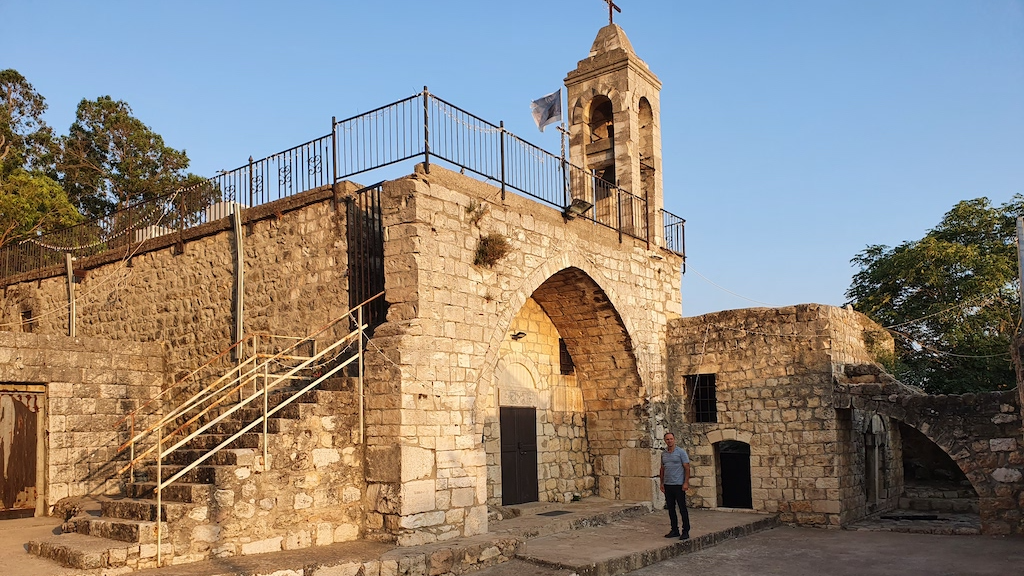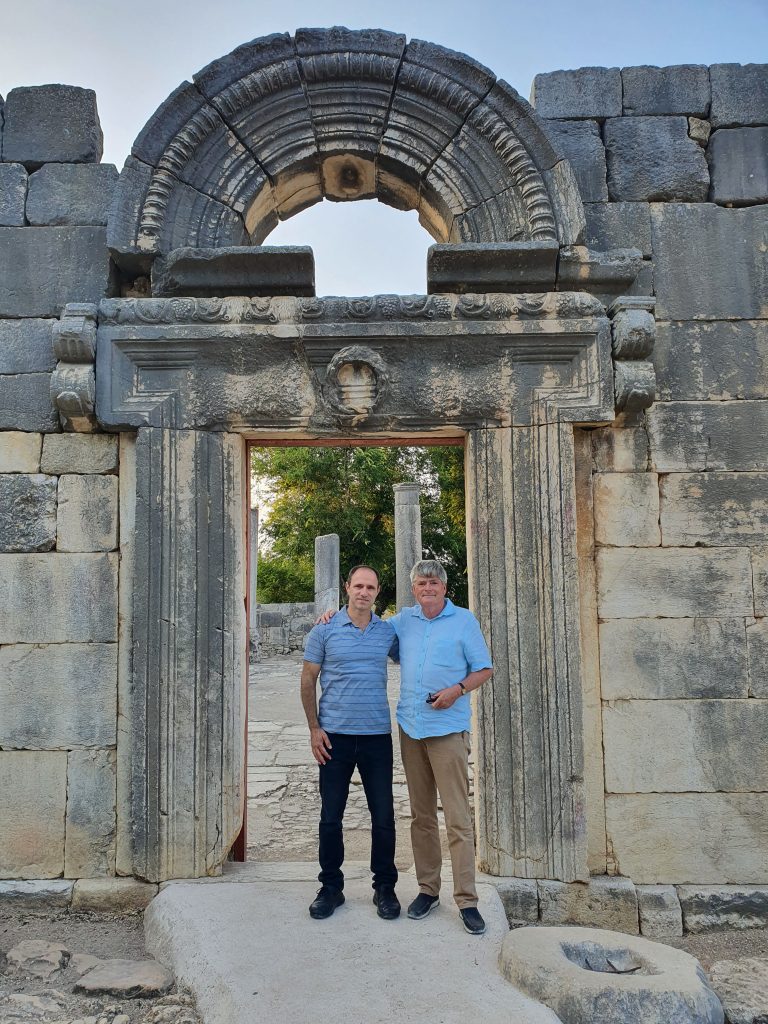Shadi Khalloul – an Aramean in Israel
Last June, together with the Chief Rabbi of the Netherlands Binjamin Jacobs, I attended the commemoration in Enschede (in the east of Holland) of the mass murder of 580,000 Aramean Christians in the Ottoman Empire in 1915. Enschede is home to many Aramean (Syriac) Christians who fled the violence directed against them in the 1970s and 1980s.
One of them connected me with Shadi Khalloul, an Aramean Christian who lives in Israel. He is in his mid-forties and of Aramean Maronite descent. He lives with his wife and two children in the village of Tish in the north of Israel, near the Lebanese border.
I visited him in July. It was a special encounter with a brother with a big heart for Israel.
Warm welcome
Tish has a mixed population of Muslims and Aramean Christians. It is also the place where the grave of the prophet Joel is located. The Aramaic-Maronite community is one of the oldest church communities in the world. Their language of worship is Aramaic. This was probably also the language of communication in Galilee at the time of the Saviour. Aramaic is now being taught again as a living language in Israel, partly on the initiative of Shadi Khalloul.
When I drove into Tish and found the right street, Shadi’s house was easily recognisable by the Israeli flag. It was a warm welcome. Shadi has been committed to the Aramean community for decades. Of the 170,000 Christians in Israel, about 12,000 belong to their community. However, many other Christians in Israel have the same Aramean background and also suffered from the Islam in the past centuries. Shadi Khalloul comes from a lineage that has its roots in the village of Baram, an entirely Aramaic-Maronite village near the present-day border with Lebanon. The village was destroyed after the 1948 war, and the refugees were dispersed and partly ended up in Tish, an Arab village not far from their original village.
Recognition
Shadi Khalloul is committed to preserving and strengthening the Aramaic Christian tradition in Israel. Until 2015, Aramean Christians were not recognised as a population group, as was the case with the Druze, Arabs and Jews. Thanks to his tireless efforts, this changed six years ago. The Aramean origin of these Christians is now recognised. He proudly showed me his new registration at the civil registry. The Aramean Christians consider themselves as a brother people of the Jewish people. Abraham, Rebekah and Rachel were all Arameans. King Hiram lent and donated a lot for the construction of the Temple of Solomon and received ten cities in return. According to tradition, he too belonged to the Aramean people group.
“The Aramean Christians consider themselves as a brother people of the Jewish people.”
Own curriculum
The wish of the Aramean population of Israel is that the once Aramean village Baram will be rebuilt and that the Aramean Christians, now that they are officially recognized in Israel, can also have their own curriculum for education. Many Aramean Christians still follow the Arabic school system, which is based on the Koran and Arabic history. Shadi’s two children and 25 other children from Tish go to kibbutz Sasa to receive Hebrew education.
Milestone
In the recent Israeli elections, Shadi Khalloul was on the list of Yisrael Beiteinu, Lieberman’s party. He just missed out on gaining a seat in the Knesset, but will probably become a Knesset member after one of the party members has to give up his seat. According to Shadi, right-wing and religious political leaders in Israel have always shown more understanding for the interests of the Aramean Christians than left-wing politicians. Once, the Supreme Court in Israel ruled that Baram must be rebuilt and given back to the Aramean Christians. For many this is not realistic, but for Shadi Khalloul it would be a milestone and an example for the whole world when it comes to cooperation between Jews and Christians.
Letter from the archbishop
Shadi showed me an extraordinary document from 1947. In 1947, the United Nations set up a commission to advise whether and how a Jewish state was possible in Palestine. The UN did not think it worthwhile to hear the opinion of the Archbishop of the Arameans on this. He was very angry about this and wrote a letter to the commission. Some citations from the letter.
“It is an incontestable fact that Palestine was the home of the Jews and of the first Christians. None of them were of Arab origin. By the brutal force of conquest they were forced to become converts to the Moslem religion. …
To include Palestine and the Lebanon within the group of Arab countries is to deny history and to destroy the social balance in the Near East…The Lebanon has always been and will remain a sanctuary for all the persecuted Christians of the Middle East…The Lebanon and Palestine must continue to be the permanent home of minorities: a Christian home in the Lebanon, as there has always been; a Jewish home in Palestine. These two centres … will form the necessary bridge between East and West, from the viewpoint of culture and civilization. The neighbourly relations between these two nations will contribute to the maintenance of peace in the Near East, and will lessen the persecution of minorities, which will always find refuge in these two countries.
Behind the closed doors of the Sofar Hotel, you were able to listen only to the words dictated to our so-called legal representatives by the lords and masters of the neighbouring Arab countries. The real voice of the Lebanese was smothered …
The Lebanon, demands freedom for the Jews in Palestine as it desires its own freedom and independence.
Signed Ignace Mobarat, Maronite Archbishop of Beirut.”






